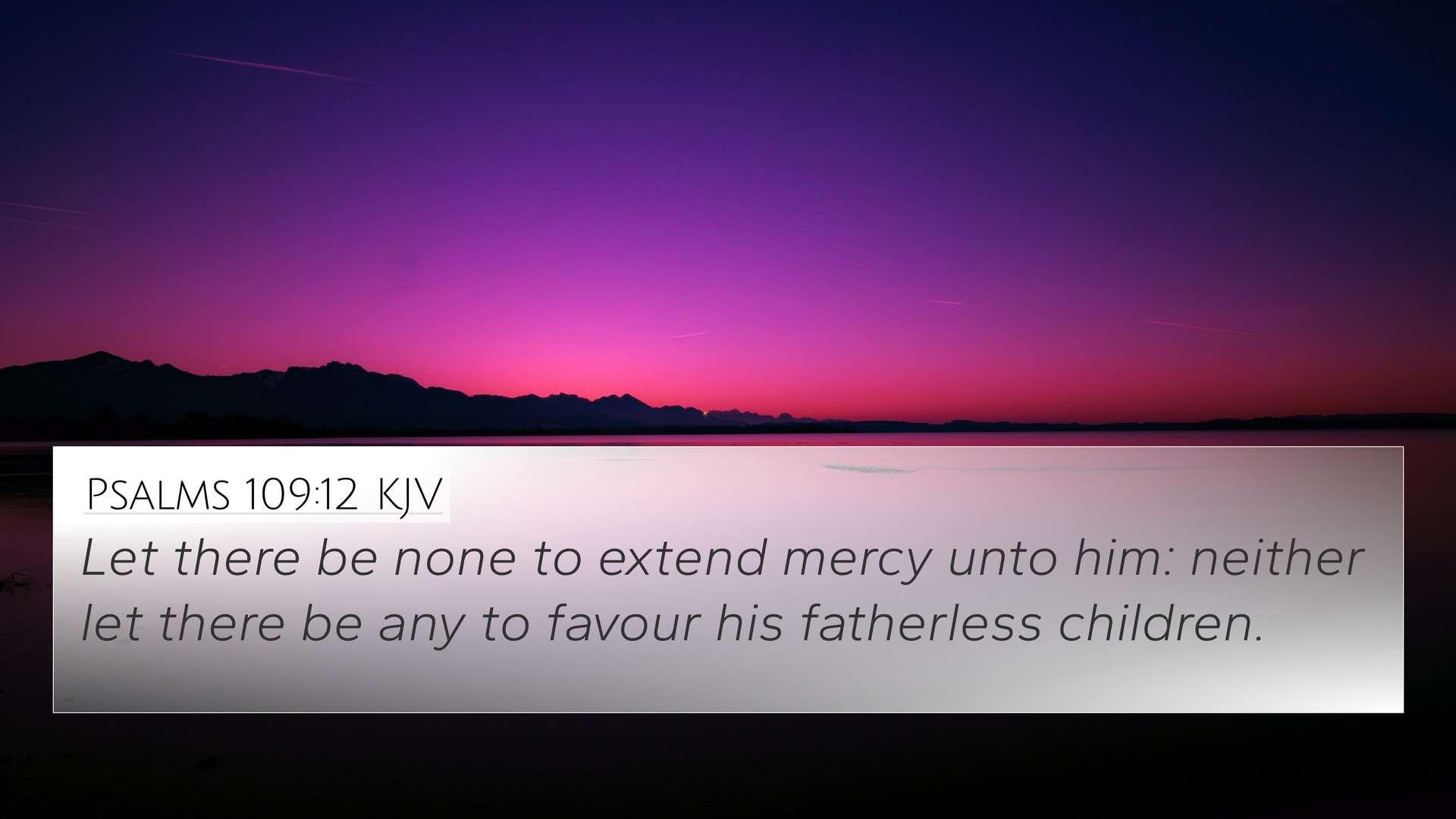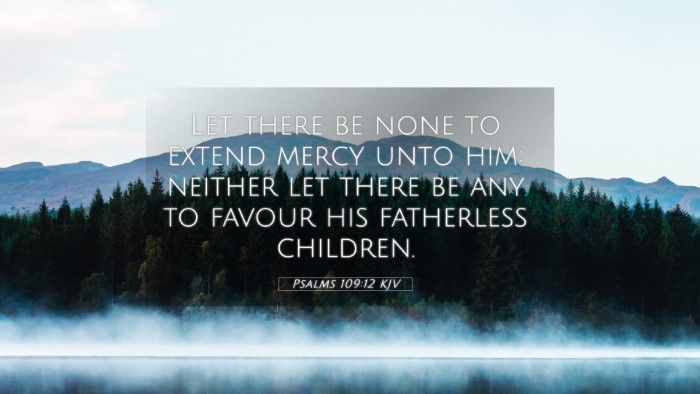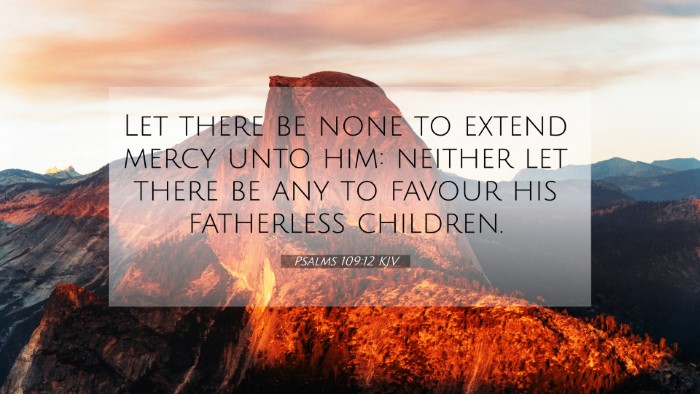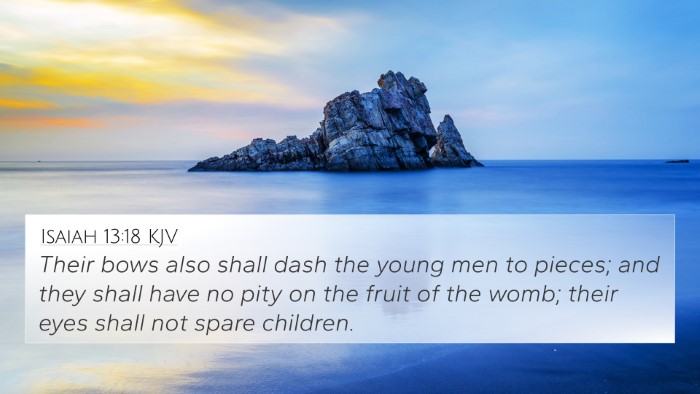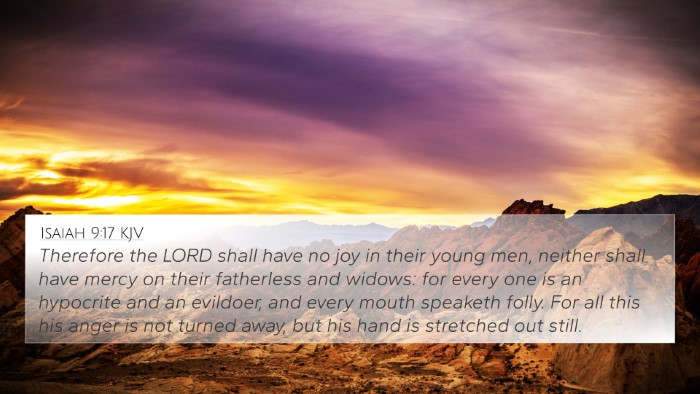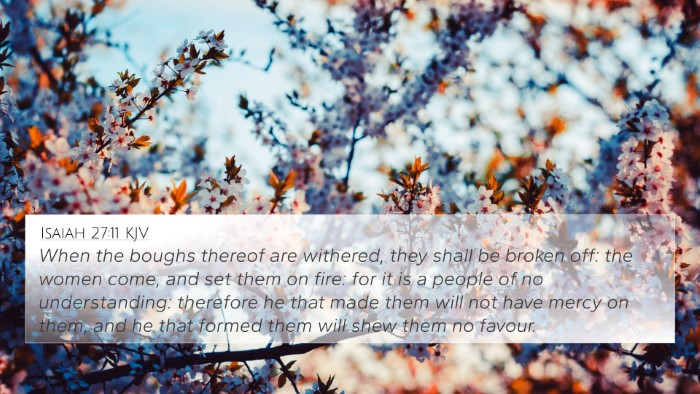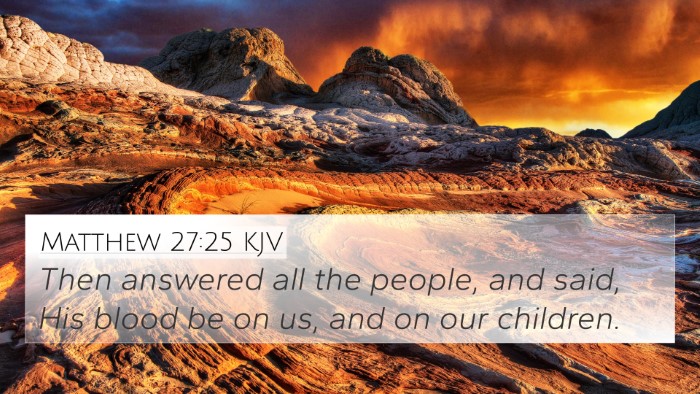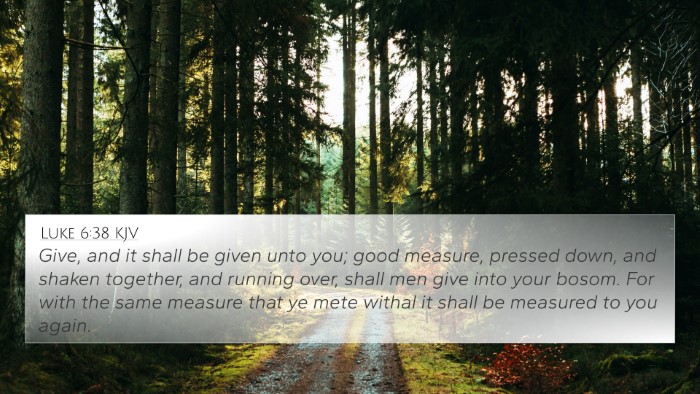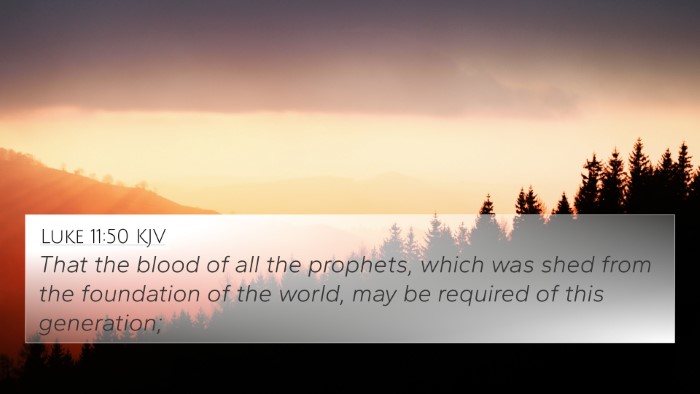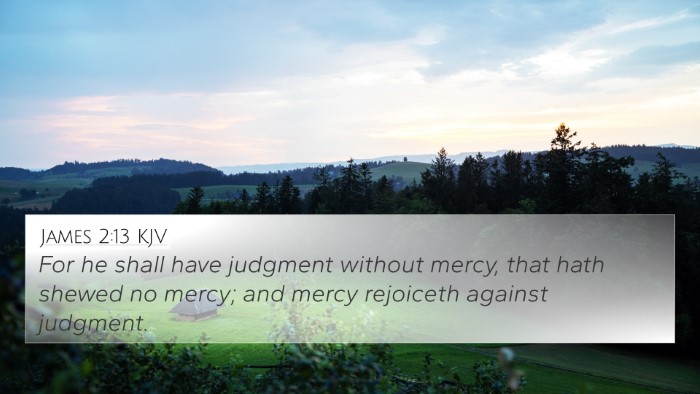Psalms 109:12 - Summary and Interpretation
Bible Verse: Psalms 109:12
"Let there be none to extend mercy unto him: neither let there be any to favor his fatherless children."
Understanding Psalms 109:12
This verse comes from a section of the Book of Psalms where the psalmist expresses deep distress and invokes a strong desire for justice. The psalmist is calling upon God to bring judgment against his enemies, desiring that they receive neither mercy nor favor.
Insights from Public Domain Commentaries
Matthew Henry's Commentary
Henry emphasizes the gravity of the psalmist's plea. He suggests that invoking the absence of mercy signifies a profound desperation and a desire for God’s justice to prevail. The concept of mercy in this context reflects the psalmist’s understanding of divine justice as intimately connected to human actions. Henry notes that the prayer is born out of a sense of betrayal and the desire for divine retribution against those who have harmed him.
Albert Barnes' Notes
Barnes elaborates that the request for none to extend mercy implies a curse upon the wicked who oppress the innocent. He highlights that this verse showcases the emotions of the psalmist caught in a struggle against adversaries who threaten his existence. Barnes conveys that the reference to "fatherless children" indicates not only a personal loss but a broader implication of societal injustice that echoes in the psalmist’s heart, longing for their protection.
Adam Clarke's Commentary
Clarke discusses the cultural context of mercy within ancient societies, where it was essential for maintaining social order. He interprets the psalmist's words as a plea for severe justice against those who would deny mercy, depicting a longing for righteousness to be restored in the face of personal grievances. Clarke also notes that the imprecation of harm against one's enemies is common in the psalms, revealing a tension between personal anguish and social morality.
Connections and Cross-References
Psalms 109:12 can be understood better when cross-referenced with several other scriptures that explore themes of justice, mercy, and vengeance. Here are 10 relevant Bible cross-references:
- Psalms 37:28: "For the Lord loves justice and does not forsake His saints; they are preserved forever; but the descendants of the wicked shall be cut off."
- Matthew 5:7: "Blessed are the merciful, for they shall obtain mercy."
- Deuteronomy 32:35: "Vengeance is Mine, and recompense; their foot shall slip in due time; for the day of their calamity is at hand, and the things to come hasten upon them."
- Romans 12:19: "Beloved, do not avenge yourselves, but rather give place to wrath; for it is written, 'Vengeance is Mine, I will repay,' says the Lord."
- Psalms 64:3: "Who sharpen their tongues like a sword, and bend their bows to shoot their arrows, bitter words."
- 1 Peter 3:12: "For the eyes of the Lord are on the righteous, and His ears are open to their prayers; but the face of the Lord is against those who do evil."
- James 2:13: "For judgment is without mercy to the one who has shown no mercy. Mercy triumphs over judgment."
- Lamentations 3:22: "Through the Lord’s mercies we are not consumed, because His compassions fail not."
- Psalms 69:28: "Let them be blotted out of the book of the living, and not be written with the righteous."
- Micah 6:8: "He has shown you, O man, what is good; and what does the Lord require of you but to do justly, to love mercy, and to walk humbly with your God?"
Thematic Exploration
The themes in Psalms 109:12 speak to the larger narrative within the Bible regarding justice and mercy. This psalm serves as a stark reminder of the consequences of betrayal and the longing for divine justice. It invites readers to reflect on the righteousness of God and the call for mercy in our human relationships.
Practical Application through Cross-Referencing
For anyone studying the Bible, utilizing these cross-references can deepen understanding. Tools for Bible cross-referencing can enhance the study by providing a framework within which the interconnectedness of scripture can be explored.
Tools for Cross-Referencing
- Bible Concordance: A resource for finding verses with similar themes or words.
- Bible Cross-Reference Guide: Helps in locating hyperlinks in scripture.
- Bible Reference Resources: Include study Bibles that incorporate cross-references.
Conclusion
In conclusion, Psalms 109:12 invites readers into a deeper understanding of mercy and justice within the context of biblical themes. The insights from prominent commentaries illuminate the text, while cross-referencing with other scriptures deepens the interpretation. For scholars and laypeople alike, this psalm serves as a call to reflect on our moral responsibilities, understand the complexities of divine justice, and cultivate a heart that seeks peace.
